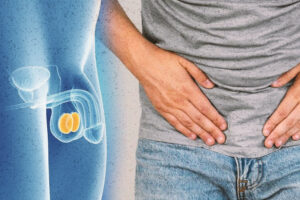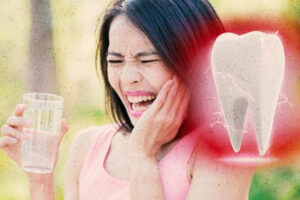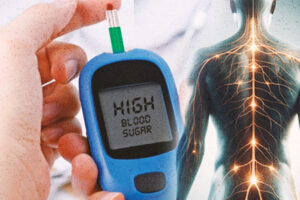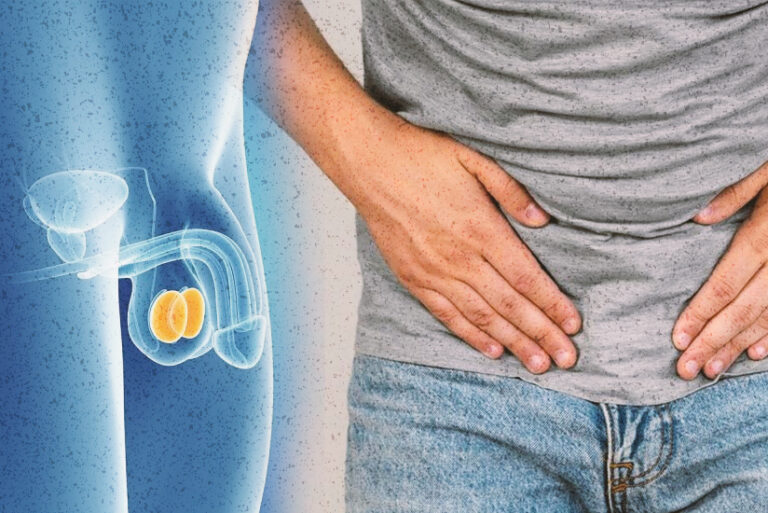By Leandrae T. Lapinig
As he gets older, Davao-based Antonio says he is becoming the opposite of what he was before. He has gradually lost his drive, strength, energy and enthusiasm for life and love. “The changes came over me very gradually, just around my fortieth birthday,” he recalls. “I first knew something was wrong, but I didn’t know what was happening.”
Without realizing it, he became incredibly moody – well, irritable, really, and would behave in a way most unlike him, flying off the handle at the least provocation. Once, he actually stormed out of the office when given an extra piece of work, and drove home, feeling entirely justified.
At home, it’s the same story. His family relations tended to become increasingly strained, and his social life and activities dwindled and wilted. His sexual life started to be a disaster area, with loss of libido and intermittent failure to achieve an erection, leading to performance anxiety and eventually complete impotence.
Not simply a midlife crisis
If you think Antonio is just experiencing a mid-life crisis, you’re wrong. In his book, Look 10 Years Younger, Live 10 Years Longer: A Man’s Guide, author and psychologist David Ryback says a man may have more than one mid-life crisis, perhaps one every five to 10 years, brought on by significant events such as a serious illness, the death of a parent or close friend, or a failure related to career, finances or relationships.
What Antonio is actually undergoing is called andropause, the male counterpart of women’s menopause. While menopause is now understood by most, only very few seem to comprehend andropause, as older men don’t discuss it among themselves.
Andropause is a combination of two Greek words: andras (human male) and pause (cessation). As such, andropause is defined as a syndrome associated with a decrease in sexual satisfaction, or a decline in a feeling of general well-being associated with lower levels of testosterone in older men.
Less testosterone, more problems
Testosterone, a hormone mainly produced by the testicles, is responsible for deep voices, muscle mass, and facial and body hair patterns of men. More importantly, it stimulates sperm production as well as a man’s sex drive.
Dr. Ryback considers andropause as a special type (“it’s the Big One,” he points out) of mid-life crisis. He writes: “Whereas mid-life crisis can be a passing phase based on a single-issue challenge, male menopause is a psychological/medical syndrome which is experienced as a passage of the spirit from one way of being to an entirely different, more thoughtful way of living life.”
It was in 1944 when two American doctors – Dr. Carl Heller and Dr. Gordon Myers – reported in an article about what we now know as andropause. They compared the symptoms with those of the female menopause and did a blind controlled trial study showing the effectiveness of testosterone treatment.
Unfortunately, like many pioneering efforts, this went unnoticed. Men were unwilling to accept that they could attain “menopause” and such research was often hurriedly brushed under the carpet. “This is just a mid-life crisis,” men with genuine symptoms were told.
Recent studies, however, showed that both are different events. Middle age is often a time when stability has been achieved and the struggles that were once a large part of men’s lives slowly come to an end. Andropause, in contrast, is a distinct physiological phenomenon caused by the gradual decline of testosterone, the principal male sex hormone.
Lower testosterone is most common in older men. “This gradual decrease in testosterone typically occurs steadily over time,” said Dr. Ian Kerner, an American sex counselor, practitioner of psychotherapy, and author on pleasuring sex partners.
In an article he wrote for CNN website, he quoted Dr. Geovanni Espinosa, a naturopathic doctor, as saying: “After age 40, men experience a 3 percent reduction in testosterone every year. After age 60, about 20 percent of men experience andropause.”
According to some estimates, the average 80-year-old man will have about 50% less testosterone than he did as a young guy.
In women, production of the female hormones stops abruptly at age 48-52. In men, on the other hand, the testes produce testosterone (as well as sperm cells) until old age, although the amount of production starts to decline by 1-2% per year starting at age 30, and the total decline could be as much as 80% at old age.
“Occasionally, the decrease in testosterone production by the testes comes rapidly,” writes Dr. Eduardo Gonzales in his weekly column in Manila Bulletin. “In these instances, the male usually exhibits the andropausal syndrome, which is characterized by signs and symptoms that are very menopause-like.”
The start of the “male menopause”
How will a man know andropause has already set in? “Most men will remain asymptomatic except for some symptoms that may be related to aging,” Dr. Gerry H. Tan, past Philippine chapter president of the American Association of Clinical Endocrinologists. “To be sure if the patient’s symptoms are related to testosterone deficiency, the best test would be to get a serum testosterone level.”
Some men may experience some symptoms. “The most common complaint that men will have is the loss of sexual desire and the loss of spontaneous erections,” says Dr. Tan, who is a professor and chief of the Section of Endocrinology at Cebu Doctors’ University-College of Medicine. “Hot flushes, the typical symptoms that women complain of, may not be evident at all.
“Other non-specific symptoms like decreased energy or concentration, feeling moody and sad including problems with sleep can be attributed to testosterone deficiency. But almost always the symptoms are rather non-specific since these symptoms may be related to the daily stresses in life,” Dr. Tan adds.
Physically, a man’s appearance changes. “Male menopause can result in an increase in body fat with reduced muscle bulk,” Dr. Tan says. “As a result, men will complain of diminished physical or work performance over time.”
A recent aging study showed that 51% of normal, healthy males aged 40 to 70 experience some degree of impotence – defined as a persistent problem attaining and maintaining an erection rigid enough for sexual intercourse. This problem cannot be attributed to the aging process alone, however, because well over 40% of males remain sexually active at 70 years of age and beyond.
Some older men may experience depression. “Testosterone helps regulate your mood,” writes healthline’s.com’s Megan McCrea. “If your testosterone level drops, you might become depressed.”
Another complication of andropause is osteoporosis, a condition in which man’s bones become brittle and fragile, fracturing more easily. “In many cases, osteoporosis doesn’t cause noticeable symptoms,” Mcrea writes. “You might not learn you have the condition until you sustain an unusual bone fracture or undergo a routine screening test.”
How to deal with andropause
The question is: Should men worry about andropause? “Unless male menopause is causing you severe hardship or disrupting your life, you’ll probably manage your symptoms without treatment,” healthline.com points out.
Here are some recommendations to deal with andropause, according to the Mayo Clinic:
* Be honest with your doctor. Work with your doctor to identify and treat any health issues that might be causing or contributing to your signs and symptoms — from medication side effects to erectile dysfunction and other sexual issues.
* Make healthy lifestyle choices. Eat a healthy diet and include physical activity in your daily routine. Healthy lifestyle choices will help you maintain your strength, energy, and lean muscle mass. Regular physical activity can even improve your mood and promote better sleep.
* Seek help if you feel down. Depression in men doesn’t always mean having the blues. Depression can cause men to suppress their feelings and become more aggressive or irritable. Men also might try to self-medicate by abusing alcohol or other substances.
* Be wary of herbal supplements. Herbal supplements haven’t been proven safe and effective for aging-related low testosterone. Some supplements might even be dangerous.
“(The effects of herbal supplements) have not been validated nor their side effects studied,” Dr. Tan cautions. “It is therefore advised at the present time to shy away from taking any herbal supplements to alleviate the symptoms of male menopause.”
On the other hand, treating aging-related low testosterone with testosterone replacement therapy is controversial. “For some men, testosterone therapy relieves bothersome signs and symptoms of testosterone deficiency,” the Mayo Clinic says. “For others, however, the benefits aren’t clear and there are possible risks.”
According to the Mayo Clinic, testosterone replacement therapy might increase the risk of heart attack, prostate cancer or other health problems. “If you wonder whether testosterone treatments might be right for you, work with your doctor to weigh the pros and cons,” it urges. – ###








